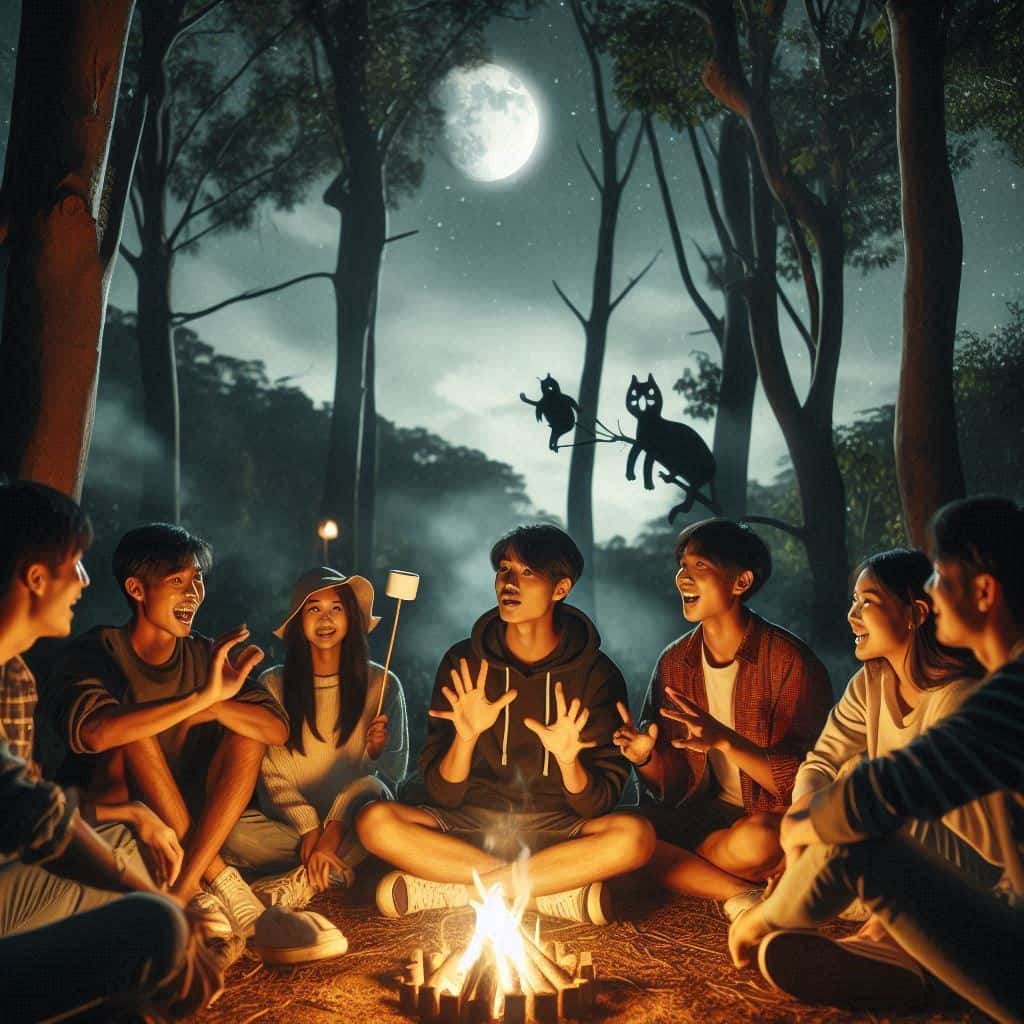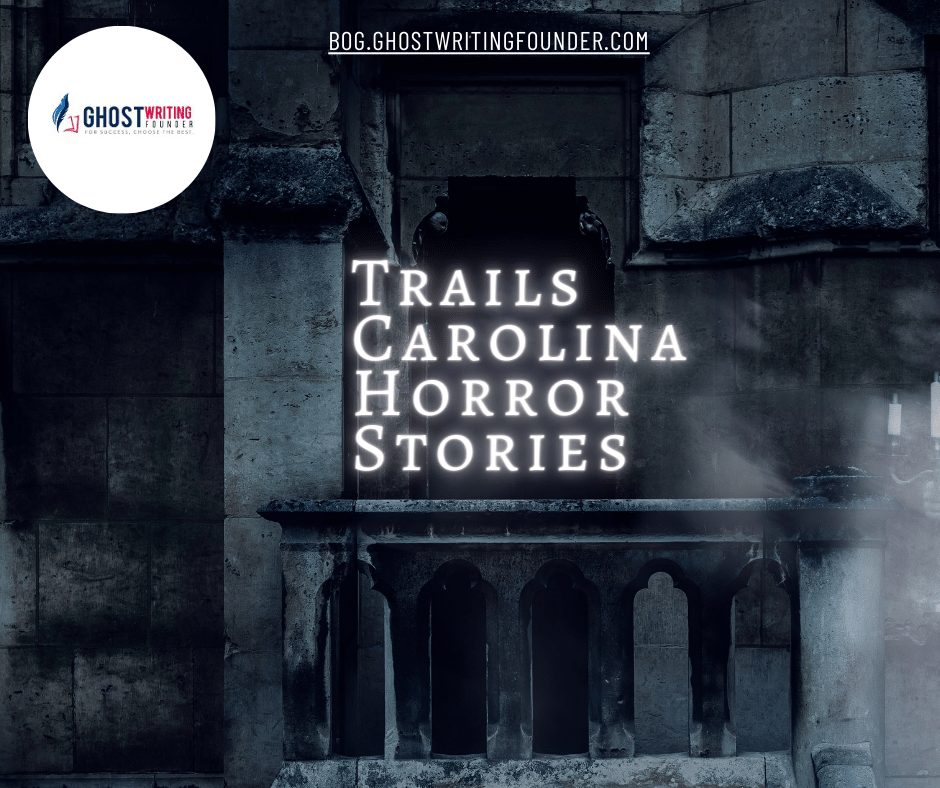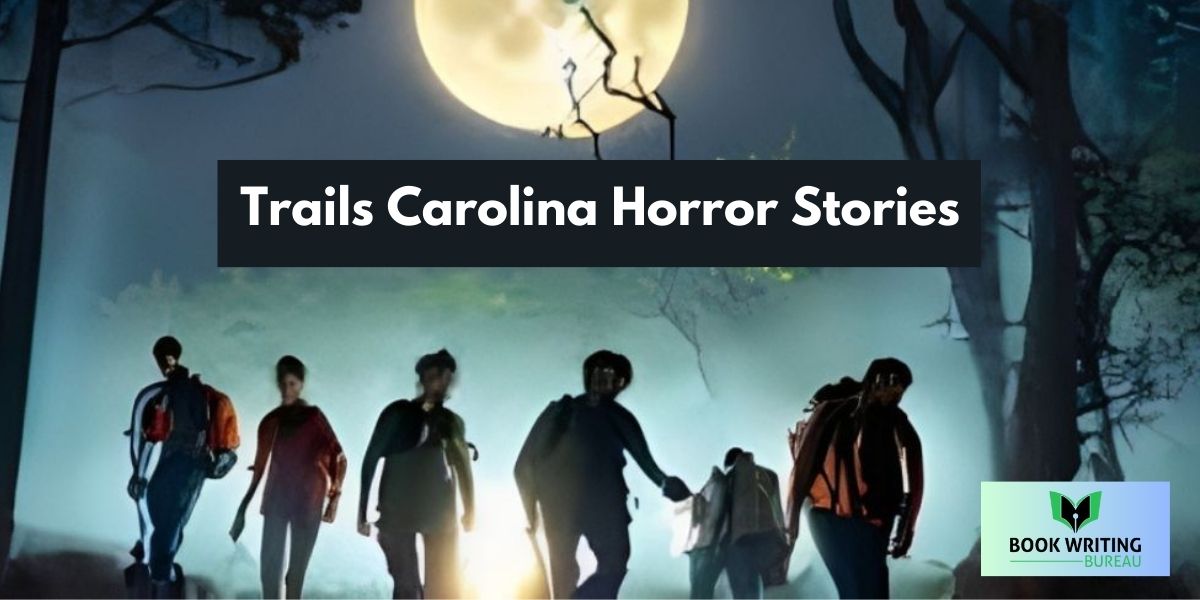Trails Carolina horror stories are not just spooky tales. They are real experiences that some kids have gone through. In this blog post, we will explore what happened and why it’s important to know these stories.
Trails Carolina is a place where teens go for help. But sometimes, things don’t go as planned. Some teens have faced scary situations in the wilderness. Let’s dive into these stories and understand what really happened.
What is Trails Carolina?
Trails Carolina is a wilderness therapy program. It helps teens with behavioral and emotional problems. The idea is to use nature and therapy to guide them to a better path.
Teens at Trails Carolina spend a lot of time outdoors. They go hiking, camping, and take part in therapy sessions. The program aims to build their confidence and teach them new skills.
However, not all experiences are positive. Some teens have faced hardships and dangers. These Trails Carolina horror stories shed light on the potential risks of wilderness therapy.
Why Teens Go to Trails Carolina
Parents send their teens to Trails Carolina hoping for a change. They want their kids to overcome problems and grow stronger. The program promises to help with emotional and behavioral issues.
Many teens struggle with things like anxiety, depression, or trouble at school. Trails Carolina offers a different approach. It combines therapy with outdoor activities to help them heal.
But the reality can be harsh. Some teens have had bad experiences. These horror stories reveal that not all teens find the help they need at Trails Carolina.

Scary Wilderness Conditions at Trails Carolina
The wilderness can be beautiful but also dangerous. Teens at Trails Carolina face tough outdoor conditions. The rough terrain and extreme weather can be challenging and risky.
Some Trails Carolina horror stories involve teens getting hurt. There have been cases where kids faced dangerous situations without proper supervision. This raises concerns about their safety.
Additionally, the lack of medical care can make things worse. Teens need to be safe and cared for, especially in such a challenging environment. These stories highlight the need for better safety measures.
Stories of Neglect and Abuse
Neglect and abuse are serious issues. Some Trails Carolina horror stories include allegations of mistreatment. Teens have reported physical and emotional abuse during their time at the program.
Parents expect their kids to be safe and cared for. But when abuse happens, it breaks their trust. These stories show the importance of proper staff training and supervision.
Teens need support and kindness, not harsh treatment. Understanding these horror stories can help improve the care provided at such programs.
Personal Experiences: Teens Share Their Trails Carolina Horror Stories
Hearing from the teens themselves is powerful. Many have shared their Trails Carolina horror stories. These personal accounts give us a deeper insight into their experiences.
Some teens remember harsh punishments. Others talk about feeling scared and alone. These stories are a cry for help and a call for change.
Listening to these teens can teach us a lot. It helps us understand the reality behind the program and the changes needed to make it better.
How Staff Training Impacts Safety
Staff training is crucial in programs like Trails Carolina. Properly trained staff can make a big difference. Unfortunately, some Trails Carolina horror stories highlight issues with staff training.
Teens have faced dangerous situations due to poor decisions by staff. This raises concerns about their qualifications and training. Ensuring staff are well-trained can prevent many of these problems.
Improving staff training can lead to better care and safety for the teens. These stories show the need for continuous improvement in staff education and practices.
Medical Care Issues in Wilderness Therapy
Medical care is vital in wilderness therapy. Teens need to be safe and have access to proper medical help. Some Trails Carolina horror stories point to a lack of medical care.
In the wilderness, injuries and illnesses can happen. Having trained medical staff is crucial. Unfortunately, some teens didn’t get the care they needed, leading to serious issues.
These stories highlight the importance of medical readiness. Programs like Trails Carolina must ensure they have the right medical support for all situations.

Trails Carolina’s Response to Criticism
With growing criticism, Trails Carolina has taken steps to respond. They have acknowledged the problems and promised changes. Their goal is to improve safety and care for the teens.
Trails Carolina has committed to better training and supervision. They aim to address the issues raised in the horror stories. These changes are a positive step towards safer therapy.
Listening to criticism and making improvements shows a commitment to the teens’ well-being. It’s important for Trails Carolina to continue working on these changes.
Lessons Learned from Trails Carolina Horror Stories
There are many lessons to learn from Trails Carolina horror stories. These experiences teach us about the risks and challenges of wilderness therapy. Understanding these lessons can lead to better practices.
Parents and programs must prioritize safety. Ensuring proper staff training and medical care is essential. These stories highlight the need for continuous improvement.
Learning from these experiences can make wilderness therapy safer and more effective. It’s crucial to take these lessons to heart and work towards better care.
Should Parents Consider Wilderness Therapy?
Wilderness therapy can be helpful, but it’s not for everyone. Parents need to carefully consider the risks and benefits. Trails Carolina horror stories show that there are both good and bad sides to these programs.
Research is key. Parents should look into the program’s safety measures and staff qualifications. Talking to other parents and reading reviews can also help.
Making an informed decision is important. Understanding the potential risks and benefits can help parents choose the best path for their teens.
Alternatives to Trails Carolina for Troubled Teens
There are other options besides Trails Carolina. Different programs offer various approaches to help troubled teens. It’s important to find the right fit for each individual.
Residential treatment centers provide a structured environment with therapy. Therapeutic boarding schools combine education and therapy. Outpatient counseling offers support while the teen stays at home.
Exploring these alternatives can help parents find the best solution. Each teen is unique, and finding the right program is crucial for their growth and healing.
Understanding the Impact of Wilderness Therapy
Wilderness therapy aims to help troubled teens through outdoor experiences and therapeutic interventions. It’s designed to provide a transformative journey where teens can learn new skills and build resilience. However, Trails Carolina horror stories reveal that not all experiences are positive. Some teens have faced challenges beyond what they expected, raising questions about the effectiveness and safety of such programs. Understanding the impact of wilderness therapy requires considering both the success stories and the shortcomings reported by former participants and their families.
The Role of Family Support in Wilderness Therapy Programs
Family support plays a crucial role in wilderness therapy programs like Trails Carolina. It can significantly impact a teen’s experience and outcomes. Parents and guardians are often involved in the decision to enroll their child and continue to provide support throughout the program. However, Trails Carolina horror stories suggest that some families feel disconnected or uninformed about their child’s progress and well-being. Effective communication and involvement of families can enhance the therapeutic process and ensure that teens receive holistic support during their journey.
Ethical Considerations in Wilderness Therapy
Ethical considerations are paramount in wilderness therapy programs. The safety, well-being, and rights of participants must be prioritized at all times. Trails Carolina horror stories have highlighted ethical concerns such as allegations of mistreatment and neglect. These stories underscore the importance of adhering to ethical guidelines and standards in therapeutic practices. Programs must maintain transparency, respect participants’ autonomy, and ensure that interventions are conducted in an ethical manner. Addressing ethical considerations can improve the quality of care and trust in wilderness therapy programs.
Addressing Mental Health Needs in Wilderness Therapy
Wilderness therapy programs like Trails Carolina often cater to teens with mental health needs. They aim to provide a supportive environment where teens can address and manage their emotional challenges. However, Trails Carolina horror stories indicate gaps in mental health support, with some teens feeling overwhelmed or unsupported during their time in the program. Effective mental health care requires trained professionals who can assess, diagnose, and treat mental health issues in wilderness settings. Programs should prioritize mental health literacy and accessibility to ensure that teens receive comprehensive support.
The Importance of Research and Evidence-Based Practices
Research and evidence-based practices are crucial in evaluating the effectiveness of wilderness therapy programs. Trails Carolina horror stories underscore the need for empirical evidence and data-driven approaches to assess outcomes and inform decision-making. Research can provide insights into the benefits and limitations of wilderness therapy, helping programs refine their practices and improve participant outcomes. By integrating research findings into program development, wilderness therapy can evolve and adapt to meet the needs of teens more effectively.
Challenges Faced by Teens in Wilderness Therapy Programs
Teens in wilderness therapy programs like Trails Carolina face unique challenges during their journey to healing. These challenges can include adapting to outdoor living, participating in group therapy sessions, and overcoming personal barriers. Trails Carolina horror stories highlight instances where teens struggled with these challenges, leading to feelings of isolation or frustration. Understanding these challenges is essential for both teens and their families to prepare adequately and navigate the wilderness therapy experience successfully.
Balancing Independence and Supervision in Wilderness Therapy
Finding the right balance between independence and supervision is critical in wilderness therapy programs. Trails Carolina aims to empower teens while ensuring their safety and well-being. However, some Trails Carolina horror stories suggest issues with inadequate supervision, leading to risky situations for participants. Effective programs establish clear guidelines and protocols to promote independence while maintaining a supportive and secure environment. Balancing these factors can enhance the therapeutic experience and promote positive outcomes for teens in wilderness therapy.
The Impact of Peer Support in Wilderness Therapy
Peer support plays a significant role in wilderness therapy programs like Trails Carolina. Teens interact with peers facing similar challenges, fostering empathy, connection, and mutual encouragement. Trails Carolina horror stories reveal the importance of positive peer relationships in navigating the ups and downs of wilderness therapy. Peer support can provide teens with a sense of belonging and validation, enhancing their motivation to engage in therapeutic activities and overcome obstacles. Cultivating a supportive peer environment is essential for promoting emotional growth and resilience among participants.
Legal and Regulatory Considerations in Wilderness Therapy
Legal and regulatory considerations are essential in the operation of wilderness therapy programs. Trails Carolina and similar programs must comply with state and federal laws governing youth treatment facilities, outdoor education, and therapeutic practices. Trails Carolina horror stories have prompted scrutiny and calls for stricter regulations to ensure participant safety and program accountability. Legal frameworks should safeguard the rights of teens, address concerns about program transparency, and hold facilities accountable for ethical standards and quality of care. Strengthening legal protections can promote trust and integrity in wilderness therapy programs.
The Role of Education and Skill Development in Wilderness Therapy
Education and skill development are integral components of wilderness therapy programs like Trails Carolina. Teens engage in educational activities, learn outdoor survival skills, and acquire tools for personal growth. Trails Carolina horror stories suggest varying degrees of educational support and skill development among participants. Effective programs prioritize academic and vocational training alongside therapeutic interventions, empowering teens to build confidence and prepare for future challenges. Enhancing educational opportunities can enhance the long-term success and well-being of teens in wilderness therapy.
Trails Carolina Horror Stories: The Beginning
Trails Carolina horror stories often start with tales of kids sent to wilderness therapy programs. Parents believe these programs will help their children. They hope the kids will come back better and happier. But sometimes, things don’t go as planned.
Many kids find the experience very hard. Living in the wilderness is not easy. They face tough conditions and strict rules. Some say they feel scared and lonely. These stories show how difficult it can be for young people away from home.
Every day is a challenge in these programs. Kids must learn to survive in the wild. They have to find food and water and build shelters. For some, this can be too much to handle. These stories remind us that not everyone can cope with such a tough environment.
Unexpected Problems in Wilderness Therapy
Wilderness therapy aims to help kids, but some trails Carolina horror stories tell a different tale. Sometimes, kids experience more problems than solutions. They might face harsh weather or dangerous animals. These unexpected problems can make things worse.
Kids in these programs often miss their families a lot. Being away from home is tough. The feeling of loneliness can be overwhelming. They want to go back but can’t. These stories show the emotional struggle of being far from loved ones.
Some kids also talk about the staff in these programs. They feel the staff is too strict. The rules are hard to follow, and the punishments can be harsh. These experiences add to the horror of being in such a tough place.
The Impact on Mental Health
Trails Carolina horror stories highlight the mental impact on kids. Being in a strict and tough environment affects their mental health. They feel stressed and anxious. The pressure to survive in the wild is intense.
Some kids develop serious mental health issues. They become very sad or angry. The constant fear and pressure can lead to lasting problems. These stories make us think about the real impact of such programs on young minds.
The experience can change how kids see themselves. They might feel like they failed if they struggle. This can hurt their self-esteem. These stories show that mental health support is crucial in such tough programs.
Parents’ Perspectives on Trails Carolina Horror Stories
Parents also share trails Carolina horror stories. They send their kids to these programs hoping for a positive change. But sometimes, they regret their decision. They see their kids come back more troubled than before.
Parents feel guilty and worried. They wanted to help but ended up causing more harm. These stories are hard for them to tell. They show the pain and regret parents feel when things go wrong.
The cost of these programs is also a concern. They spend a lot of money but don’t always see the results they hoped for. These stories highlight the financial and emotional toll on families.

Lessons Learned from Trails Carolina Horror Stories
Trails Carolina horror stories teach us important lessons. They show that not every program works for every kid. It’s important to research and choose carefully. Parents need to understand the risks involved.
Listening to kids is crucial. They need to feel heard and supported. These stories remind us to consider the child’s feelings and needs. A supportive environment can make a big difference.
These stories also highlight the need for better mental health support. Kids in tough programs need help coping with stress and anxiety. Providing this support can lead to better outcomes for everyone involved.
Conclusion
In conclusion, Trails Carolina horror stories reveal both the challenges and potentials of wilderness therapy for troubled teens. While some teens find healing and growth through outdoor experiences and therapy, others face daunting obstacles and safety concerns. It’s crucial for parents to carefully research and consider all aspects before choosing such a program for their child.
Moving forward, improving safety measures, staff training, and transparency are essential for wilderness therapy programs like Trails Carolina to effectively support teens’ emotional and behavioral needs. By learning from these experiences and prioritizing participant well-being, programs can foster a positive environment where teens can thrive and overcome difficulties. Ultimately, the goal is to provide a safe and nurturing space where every teen has the opportunity to heal and grow into their best selves.










